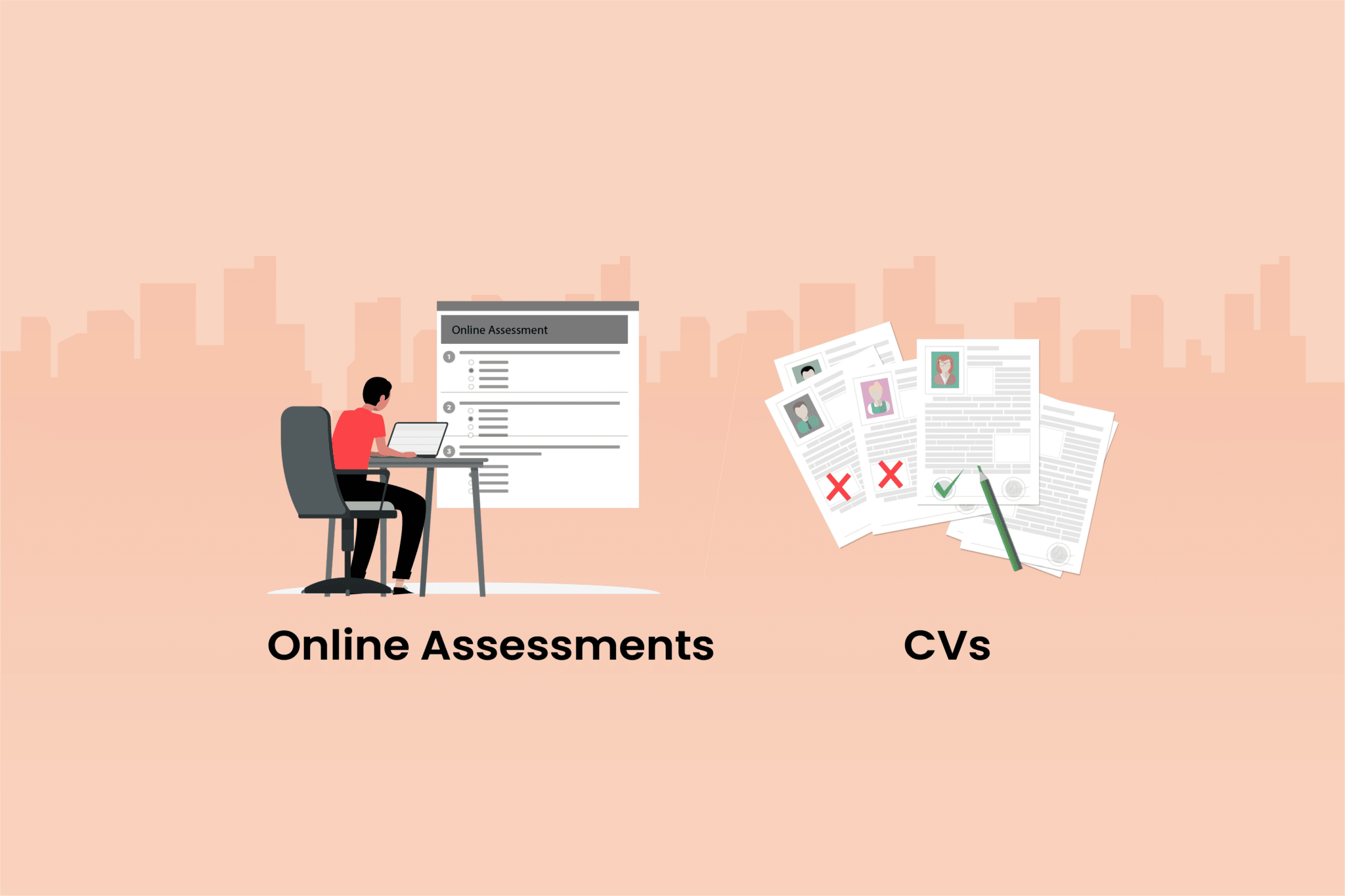Employee engagement is a critical component of any thriving organization. Engaged employees are more productive, innovative, and committed to their work. They are also more likely to stay with their current employer, reducing turnover rates.
According to a Gallup study, only 36% of U.S. employees are engaged at work. However, companies like Google have shown that improving engagement can boost productivity by 20%. By implementing innovative strategies, like flexible work options and continuous feedback, Google has set a benchmark for successful employee engagement.
In this blog, we’ll explore a selection of employee engagement case studies that showcase how various companies have achieved remarkable results by prioritizing and enhancing employee engagement.
1. Google: The perks of employee engagement
Google, the tech giant that needs no introduction, has long been a frontrunner in fostering employee engagement through innovative practices and a supportive work environment. One standout policy that has garnered worldwide attention is Google’s “20% time” initiative. This practice allows employees to dedicate a fifth of their work hours to personal projects of their choice. The result? A remarkable surge in both engagement and innovation.
The 20% time policy has birthed some of Google’s most successful products, including Gmail and Google News. By granting employees autonomy and the freedom to explore their passions, Google has tapped into a wellspring of creativity that not only benefits the employees themselves but also fuels the company’s growth and product development. This initiative sends a clear message to employees: their ideas and aspirations matter, fostering a sense of ownership and engagement in their work.
Beyond this, Google invests significantly in creating an environment that nurtures employee well-being and a profound sense of belonging. The company offers a range of enticing perks, such as free meals, on-site healthcare, and relaxation spaces. These benefits go a long way in reducing stress and enhancing the quality of work-life for employees.
This emphasis on well-being is not only a generous gesture but also a strategic move. Google recognizes that a content and healthy workforce is a more engaged and productive one. Employees who feel cared for are more likely to stay with the company, reducing turnover rates and retaining valuable talent.
Google’s commitment to employee engagement through the 20% time policy and an enriching work environment has consistently yielded high levels of engagement and retention. By placing trust in their employees’ abilities and well-being, Google has not only set a benchmark for the tech industry but has also demonstrated how investing in employees pays off in the long run.
2. Zappos: Cultivating a vibrant company culture
Zappos, the online retail giant specializing in shoes and clothing, is a stellar illustration of how a distinctive company culture can be a catalyst for employee engagement. At the heart of Zappos’ remarkable success story is its unwavering commitment to a set of core values that shape their culture. Two of the most pivotal values are “Deliver WOW Through Service” and “Create Fun and A Little Weirdness.”
What makes Zappos truly stand out is their dedication to integrating these values into every facet of the organization, starting from the very beginning of an employee’s journey – the hiring process. Zappos places significant emphasis on cultural fit, alongside assessing job skills, when considering potential hires. This cultural fit, in essence, ensures that employees are genuinely enthusiastic about the company’s values and mission.
The result of this cultural integration is twofold. Firstly, it creates a workplace where employees find a deep sense of purpose and meaning in their roles. When your work aligns with your values, job satisfaction and engagement naturally follow. Zappos employees aren’t just processing orders; they’re actively contributing to delivering “WOW” to customers and embracing a work environment that encourages “a little weirdness.”
Secondly, this focus on cultural fit leads to a shared ethos and sense of belonging among the workforce. Zappos employees don’t merely work for a company; they work for a cause they believe in, surrounded by colleagues who share their passion.
By fostering a vibrant company culture that prioritizes values and cultural fit, Zappos has not only set the gold standard for employee engagement but has also demonstrated the direct connection between a unique company culture and employee satisfaction. Their success story underlines the significance of hiring employees who resonate with an organization’s core values and how this alignment can lead to a more engaged, motivated, and content workforce.
3. Microsoft: A data-driven approach
In the tech world, Microsoft is a behemoth, and its innovative approach to employee engagement is nothing short of remarkable. The company has wholeheartedly embraced a data-driven approach through its “One Microsoft” program, and the results are a testament to the power of listening to employees.
Central to Microsoft’s strategy is the regular collection of feedback from its employees. This feedback isn’t just for show; it serves as a valuable resource for making strategic improvements. By actively seeking input from the workforce, Microsoft sends a clear message that employee opinions matter and that the company values their insights and concerns.
One of the most compelling outcomes of this data-driven approach is the transformation of Microsoft’s performance review process. Historically, performance reviews at many companies were dreaded events, often focused on rankings and ratings. However, by heeding the feedback received from employees, Microsoft decided to shift its approach. The company recognized that a performance review process centered on employee development and growth, rather than competition, was more conducive to employee engagement.
The revamped system at Microsoft fosters collaboration and skill development. Employees no longer feel the stress of being pitted against each other, but rather, they are encouraged to work together and support one another’s professional growth. This shift has led to a more positive work environment where employees are motivated to excel, knowing that their contributions are recognized and that they have opportunities for personal and career development.
Microsoft’s data-driven approach demonstrates a key principle of employee engagement: the importance of actively listening to your workforce and acting upon their feedback. By showing that employee opinions drive meaningful change, Microsoft has created an atmosphere of trust and collaboration that enhances engagement and, ultimately, benefits both the company and its employees. It’s a compelling case study in how a corporate giant can transform its culture through a commitment to data-driven, employee-focused improvements.
4. Hilton: Recognition and appreciation
In the competitive world of the global hotel industry, Hilton has set a shining example of how recognition and appreciation can be instrumental in keeping employees engaged and, in turn, boosting business success. Hilton understands the invaluable role that motivated and engaged employees play in delivering exceptional guest experiences.
To nurture this engagement, Hilton has implemented a variety of programs and systems designed to recognize and appreciate outstanding employee performance. Two of the most prominent initiatives are “Catch Me at My Best” and “Spirit of CARE.”
The “Catch Me at My Best” program empowers employees to spot and acknowledge exceptional efforts and contributions made by their colleagues. This approach encourages a culture of peer-to-peer recognition, where employees not only work for the company but work together to support one another. This recognition fosters a sense of appreciation, creating a workplace where employees feel valued for their hard work and dedication.
Similarly, the “Spirit of CARE” program is another testament to Hilton’s commitment to employee engagement. This program reinforces the idea that when employees care for each other, they are more likely to extend that same care to their guests. It underscores the importance of teamwork and shared values within the Hilton community, contributing to a positive, collaborative work environment.
The tangible results of Hilton’s focus on recognition and appreciation have been remarkable. Improved customer satisfaction is a direct outcome of having engaged employees who take pride in their work. When employees feel appreciated and valued, they are more inclined to go the extra mile to ensure guests have an exceptional experience. Furthermore, the correlation between employee engagement and business success is evident in Hilton’s increased employee retention rates. Engaged employees are more likely to stay with the company, reducing the costs associated with turnover and ensuring a consistent and high-quality level of service.
Hilton’s emphasis on recognition and appreciation through programs like “Catch Me at My Best” and “Spirit of CARE” serves as a noteworthy case study in the hotel industry. It underscores the importance of building a culture where employees feel appreciated and motivated, which, in turn, significantly impacts customer satisfaction and business success. Hilton has shown that when employees are engaged and supported, they become enthusiastic brand ambassadors, ultimately driving the success of the entire organization.
5. The Ritz-Carlton: Empowering employees to go the extra mile
When it comes to the hospitality industry, The Ritz-Carlton stands out as a shining example of how prioritizing employee engagement can lead to unparalleled customer service. The luxury hotel chain has honed its reputation for excellence by instilling a culture of trust and empowerment in its workforce, granting employees the authority to make on-the-spot decisions that benefit guests, all without the need for managerial approval.
One of the cornerstones of this strategy is the level of autonomy granted to employees. The Ritz-Carlton has built a unique culture of trust, where employees are not just seen as staff but as valued decision-makers. This empowerment enables employees to seize opportunities to enhance a guest’s experience, whether it’s a complimentary upgrade, personalized amenities, or solving an issue promptly.
This level of autonomy doesn’t only create a culture of trust but also fosters a deep sense of employee engagement. When staff members are entrusted with such responsibility, they feel a greater sense of ownership in their roles, resulting in a more committed and motivated workforce.
The outcomes of this approach are clearly visible in the exceptional customer experiences provided by The Ritz-Carlton. Case studies of various Ritz-Carlton properties consistently show high levels of employee satisfaction. Happy, engaged employees are more likely to go above and beyond to ensure that guests have memorable stays, leading to unparalleled customer service. The word-of-mouth generated by these exceptional experiences is invaluable in an industry where reputation is everything.
Furthermore, this employee-centric strategy has a positive impact on the bottom line. Satisfied guests are more likely to return, provide positive reviews, and recommend the hotel to others. This translates into increased revenue and profitability for The Ritz-Carlton, reinforcing the strong correlation between employee engagement and business success.
The Ritz-Carlton’s approach to empowering employees is a stellar example of how prioritizing engagement can elevate customer service to extraordinary levels. By fostering a culture of trust and granting autonomy, the company has created a workforce that is not just committed but inspired to deliver exceptional guest experiences. The success of The Ritz-Carlton serves as a compelling case study in how employee engagement can be the cornerstone of business excellence in the hospitality industry.
Conclusion
These employee engagement case studies demonstrate that investing in your employees is an investment in your organization’s success. By creating a supportive and engaging work environment, encouraging innovation, and valuing employee opinions, these companies have achieved remarkable results.
Whether you’re a tech giant like Google, an online retailer like Zappos, a tech conglomerate like Microsoft, a global hotel chain like Hilton, or a luxury hotel brand like The Ritz-Carlton, the common thread among these success stories is the recognition that engaged employees are a company’s most valuable asset. By taking inspiration from these case studies, businesses of all sizes and industries can create a culture of employee engagement that drives success and prosperity.
Testlify offers a range of assessments and challenges that allow you to gauge candidates’ knowledge, problem-solving skills, and creativity in real-world scenarios. With our extensive test library, you can objectively evaluate candidates’ abilities, ensuring you shortlist the most talented individuals efficiently. Ready to unlock the potential of your hiring process with our talent assessment tool? Book a free 30-minute live demo with Testlify. Our expert team will guide you through the platform, showcasing relevant skill tests tailored to your organization’s needs. With our support, you can streamline candidate selection, saving valuable time and resources.








